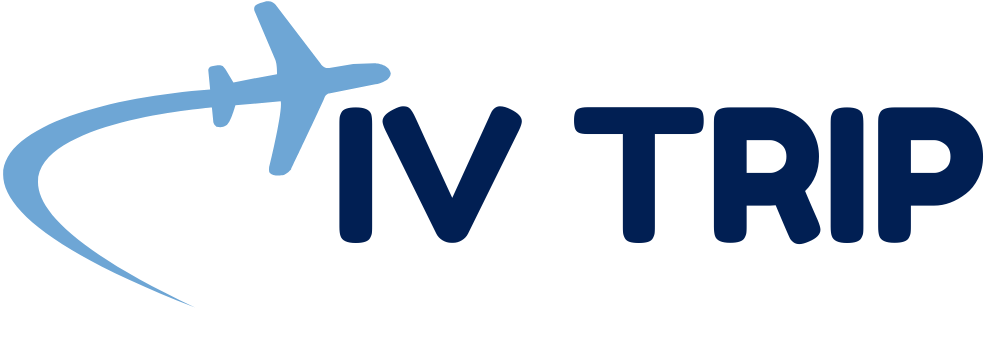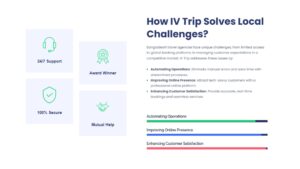Crucial Cybersecurity Essentials for Travel Software

Cybersecurity Essentials for Travel Software: Protecting Customer Data
Travel agencies handle sensitive customer data (passports, credit cards, itineraries), making robust cybersecurity essentials critical. In fact, the travel and tourism sector ranks third in cyberattacks, with 70% of travel companies reporting a data breach. As Forbes notes, the hospitality industry is a top target worldwide, since each traveler’s personal information is a prime target for identity theft and phishing.
Modern travel agency software (often delivered via SaaS) must defend against evolving threats like ransomware, phishing, and insecure third-party integrations. Implementing strong security measures not only protects customer privacy but also builds trust and compliance. This guide covers the core cybersecurity essentials travel agencies need—encryption, access controls, secure development, compliance, and more—to safeguard customer data in any travel software platform.
Why Cybersecurity is Critical for Travel Agency Software
Travel agency systems manage huge volumes of personal and financial data. Each online booking can involve credit card details, passport numbers, addresses, and other private information. Unfortunately, the travel industry has learned this the hard way: major travel companies have repeatedly “cut corners” on security and suffered data breaches. Multiple platforms (booking engines, CRM, mobile apps) touch customer data, so every new integration expands the attack surface. Cybercriminals often target travel agencies, knowing they process payments and sensitive records. For example, studies found that large travel firms neglecting basic security have left customers vulnerable.
Key Travel Threats: Phishing scams for agent logins, credential stuffing on cloud services, and insecure web forms are common. Distributed systems must be secured, and global operations require centralized monitoring and strong policies. SaaS platforms like Implevista ensure PCI-DSS compliance for handling payments. Securing travel software is critical to protect customer data and agency reputation.

SaaS and Cloud Security in Travel Systems
Many travel solutions today are SaaS-based (cloud-hosted) for scalability. SaaS data security has some unique challenges: multi-tenant architectures (many agencies share servers), open internet access, and reliance on third-party providers. Effective SaaS security demands a shared responsibility model: the provider secures the infrastructure, while agencies secure configurations and user access.
According to security experts, “effective SaaS security relies on robust access controls, encryption, continuous monitoring, and collaboration with cloud providers.” That means every travel agency should enforce centralized authentication (like single sign-on) and Multi-Factor Authentication (MFA) for all logins. MFA alone “significantly reduces the risk of unauthorized access, even if a user’s password is compromised”. Access should be role-based, granting employees only the data and features needed for their job. Continuous monitoring (using tools like SIEM or CASB) helps flag unusual logins or data transfers in real time.
Other SaaS best practices involve regular security checks, Data Loss Prevention, and CASBs. Security standards recommend TLS 1.2+ for data in transit and encryption for data at rest. As summarized in Implevista’s guide, encrypt data, use secure authentication, and treat security as essential for SaaS apps.
Essential Security Measures for Travel Software
To protect customer data in travel agency software, you need to apply a multi-layered approach built on core cybersecurity essentials. These measures form the foundation of any secure digital platform and directly address the risks travel agencies face.
- Strong Authentication & Access Control: Require strong passwords and MFA for all users. Use Single Sign-On (SSO) with industry-standard protocols. Define Role-Based Access Control (RBAC) so employees and agents can only view functions (sales, booking, accounting) relevant to them. Regularly audit user accounts and remove access for former staff. These steps are part of the basic cybersecurity essentials every travel platform should enforce.
- End-to-End Data Encryption: Always encrypt sensitive data in transit (TLS/SSL for all web traffic and API calls) and at rest (AES-256 or better for databases and backups). As Splunk notes, “encrypt sensitive data because it remains unreadable and secure even if it’s intercepted.” Many travel platforms now use “bank-level encryption” on servers. For added security, travel software should automate key management (rotate keys, limit privileges) and never store plaintext credentials—another critical piece of modern cybersecurity essentials.
- Secure API and Integration Practices: Travel software often integrates with airlines, hotels, and payment gateways via APIs. Ensure all API endpoints use HTTPS and validate inputs to prevent injection attacks. Use API gateways or tokens and restrict calls to known sources. Regularly review third-party connections – attackers can exploit weak links. Conduct penetration testing and code reviews on APIs. Limit data sharing: e.g., only send partners the minimum itinerary info needed, not full customer profiles. Proper API security is one of the most overlooked cybersecurity essentials in SaaS systems.
- Regular Audits, Monitoring, and Logging: Implement continuous vulnerability scanning and patching. Logs should record admin changes, failed login attempts, and data exports. Use automated tools to detect anomalies (like a sudden large database query) and alert security teams. For instance, Forcepoint advises using behavioral analytics to flag insider threats and compromised accounts in real time. Plan for quarterly security audits (including cloud configurations, access controls, encryption settings) to catch misconfigurations early. Ongoing monitoring is a non-negotiable cybersecurity essential.
- Data Backups & Incident Response: Maintain regular encrypted backups of all customer data offsite. In case of ransomware or data loss, backups ensure continuity. Develop an incident response plan: define roles, notification procedures (to customers and regulators), and a recovery timeline. Conduct breach drills so the team can respond quickly if an intrusion occurs. A swift response limits damage and demonstrates to customers that their data is in responsible hands. This preparedness is central to cybersecurity essentials in travel technology.
- Employee Training & Awareness: Human error is often the weakest link. Train all staff (agents, marketing, IT) on phishing recognition, secure password habits, and data handling. This includes travel-specific scenarios (e.g., risks of Wi-Fi on the go or handing physical devices to clients). A culture of security awareness can prevent many attacks and is considered one of the most practical cybersecurity essentials any business can implement.
Modern travel agencies often use laptops and mobile devices while traveling. Ensuring device security (encryption, screen locks, up-to-date antivirus) is part of overall data protection. Software updates should be applied immediately on all devices to fix security flaws. If your travel software has mobile or offline components, protect those equally.

Compliance and Regulatory Requirements
Travel businesses handling payments and personal data must comply with strict regulations. Key standards include:
- Payment Card Industry Data Security Standard (PCI DSS): Mandatory if processing credit cards. PCI DSS requires encrypted card data, regular security scans, and strict access controls. For example, payment pages and databases should be on isolated networks with firewalls. Travel software vendors must ensure end-to-end encryption and use tokenization when possible. VikingCloud notes many travel companies miss PCI compliance, leaving cardholder data exposed.
- Data Privacy Laws (GDPR, CCPA, etc.): Agencies with EU or California customers must follow GDPR/CCPA on data collection and storage—store necessary data only, get consent, and allow data deletion. Encrypt data and provide a clear privacy policy. Ensure the ability to satisfy data subject requests and meet breach notification timelines.
- Other Standards: Depending on region or specialty, standards like ISO 27001 (information security management) or local laws (e.g., Bangladesh’s Digital Security Act, PHI rules if health information is involved) may apply. Ultimately, certifications and third-party audits demonstrate to partners and clients that the travel software meets high security benchmarks.
Encryption and two-factor authentication are baseline requirements. A Stanford University guide recommends enabling TLS 1.2+ for all SaaS connections and encrypting data at rest. Travel agencies should verify that their software partners (like IV Trip or others) follow these minimum standards. For example, the travel platform Travefy is advertised as “PCI-DSS compliant” and uses industry-standard encryption to keep client data. When selecting software, request evidence of compliance (such as reports or certificates) and audit provisions.
Choosing and Using Secure Travel Agency Software
When selecting a travel agency management system or SaaS solution, prioritize security features:
- Built-In Security Controls: Ensure the software has integrated authentication, authorization, and encryption options. For example, Implevista’s IV Trip platform emphasizes “bank-level encryption” and routine backups to build trust. Check if the vendor offers audit logs, role-based access, and configurable security settings.
- Vendor Reputation and Support: Partner with vendors known for a security focus. Implevista, for instance, highlights continuous maintenance and a security-centric SDLC. A reputable provider will also handle regular updates transparently and support industry standards. According to a SaaS development guide, the right partner “treats security as a priority” by enforcing encryption, vulnerability testing, and compliance audits.
- Cloud Architecture: Prefer cloud-based solutions hosted on secure platforms (AWS, Azure, Google Cloud) that meet industry certifications. Cloud infrastructure often has built-in protections (firewalls, DDoS mitigation). Verify the geographic location of data centers (for data sovereignty) and ensure data is replicated securely.
- User Education and Service: Good vendors train your team on using the software safely. A robust help center or 24/7 support (like Implevista’s global offices) can assist immediately if a security issue arises. Many agencies also subscribe to newsletters or blogs (like the IV Trip blog) for security updates.
Ultimately, treat your travel software as a critical business asset. When in doubt, ask the software provider for a detailed security whitepaper or compliance documents.
Cybersecurity Essentials: IV Trip’s Approach to Data Security
At IV Trip, security isn’t treated as an afterthought—it’s built into the core of the platform. The software uses bank-level encryption to protect sensitive data in transit and at rest, ensuring that booking details, payment records, and customer profiles are never exposed. Multi-factor authentication (MFA) is enforced for agent and admin accounts, reducing the risk of unauthorized access.
Role-based access control ensures team members only see what they need, while detailed audit logs provide full visibility into account activity. IV Trip also maintains PCI-DSS compliance for secure payment handling and performs regular vulnerability testing to stay ahead of emerging threats. For travel agencies, this means peace of mind that their customers’ information is protected by a system purpose-built with modern cybersecurity essentials.
In the competitive travel industry, securing customer data is non-negotiable. By implementing these cybersecurity essentials—strong access controls, rigorous encryption, continual monitoring, and regulatory compliance—travel agencies can protect travelers’ information and their own reputation. Remember to conduct regular security audits and keep staff vigilant.
For travel agencies seeking expert guidance, Implevista offers tailored solutions in travel technology and security. Contact Implevista today to review your travel software’s security posture or learn how our IV Trip platform incorporates advanced safeguards. Subscribe to our blog for the latest travel tech insights, and get in touch to ensure your customers’ data stays safe and your business thrives.
FAQs: Cybersecurity Essentials
- What are the cybersecurity essentials for travel software?
Cybersecurity essentials include multi-factor authentication, data encryption (both at rest and in transit), secure API integrations, regular security testing, and user training. Travel software must implement these layered defenses to protect customer PII and payment data against breaches.
- Why is IV Trip the best travel agency software in Bangladesh in terms of maintaining data security?
IV Trip stands out because it combines bank-level encryption, multi-factor authentication, and role-based access control to safeguard sensitive customer data. The platform is PCI-DSS compliant for payment security and undergoes regular vulnerability testing. Unlike generic tools, IV Trip is designed specifically for travel agencies in Bangladesh, meaning its security framework addresses the unique risks of the local market while still meeting international standards.
- How can travel agencies protect customer payment information?
Follow PCI-DSS standards: use secure payment gateways, encrypt card data, and tokenize where possible. Ensure the travel software never stores raw credit card numbers unencrypted. Regularly scan for vulnerabilities in payment modules. Many travel platforms emphasize end-to-end encryption and PCI compliance to keep payment data safe.
- What role does encryption play in travel software?
Encryption scrambles sensitive data so only authorized parties can read it. In travel software, encrypting data in transit (via TLS/SSL) prevents eavesdropping on bookings or profile updates. Encrypting at-rest (in databases and backups) ensures that even if storage is breached, the data remains protected. Industry guides state that encryption “keeps information more secure” both in transit and at rest.
- Do travel agencies need to comply with GDPR and other privacy laws as cybersecurity essentials?
Yes. If you handle EU customers or their data, GDPR compliance is mandatory. This means obtaining consent before collecting data, allowing users to access or delete their data, and promptly reporting breaches. Travel agencies often operate globally, so they should also consider data privacy laws like the CCPA (California) or others. Compliance is part of the cybersecurity essentials to protect customer trust.
- How often should travel software be updated for security?
Frequent updates are crucial. Apply security patches as soon as they’re released. A best practice is to have an automated patch management process. For cloud software, updates are often pushed continuously. Additionally, perform full security audits (vulnerability scans, penetration tests) at least annually or after any major change.
- What is an incident response plan for a travel agency?
An incident response plan is a documented procedure for handling security breaches. For travel agencies, it should detail roles (who investigates, who contacts customers/regulators), communication steps, and data recovery processes. If a breach occurs, the plan is executed immediately to contain the breach, assess impact, notify affected customers, and restore systems from secure backups.
- How can employees help maintain travel software security?
Employees should be trained to recognize phishing emails, use strong passwords, and follow data-handling policies. For example, agents should use only company-approved devices and avoid public Wi-Fi without a VPN. Regular training sessions and clear IT policies empower employees to act as the first line of defense.
- Can small travel agencies afford strong cybersecurity?
Yes. Cloud and SaaS solutions allow even small agencies to leverage enterprise-grade security. Many SaaS travel platforms include built-in encryption, compliance, and security monitoring. The “pay-as-you-go” model means you get these protections without big infrastructure costs. Implevista’s solutions, for example, include security features suitable for agencies of all sizes.
- What should I look for when choosing travel agency software?
Evaluate the software’s security features: Does it offer multi-factor login, data encryption, role-based access, and audit logs? Check the provider’s compliance claims (PCI-DSS, GDPR). A reputable vendor should provide security documentation. Also, see if the platform is regularly updated and supported. Choosing a partner like Implevista ensures your travel software is built with security as a priority.


